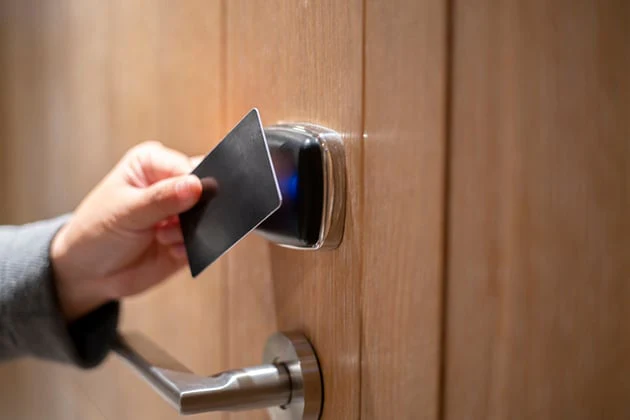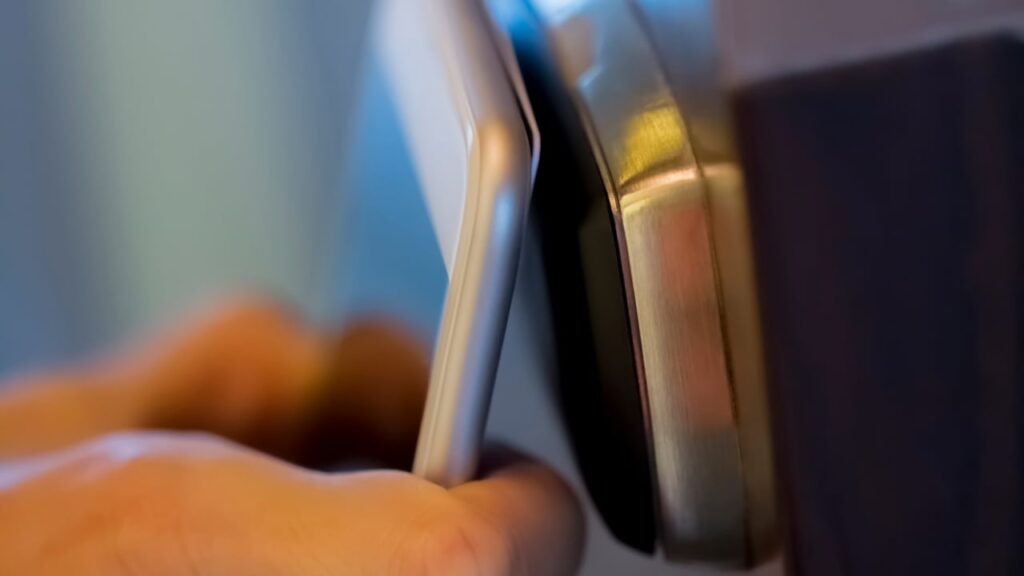In recent years, the hospitality industry has been embracing new technologies to enhance guest experience and streamline operations. Two prominent solutions that have gained traction are mobile keys and hotel self-service kiosks. Let’s delve into each of these technologies, compare their strong points and drawbacks, and determine which one is better suited for a staff-less hotel.
Mobile Keys
Mobile keys, also known as digital or virtual keys, allow guests to unlock their room using their smartphones. The process typically involves sending the key information to the guest’s device via an app or SMS. When they approach the door, the phone’s Bluetooth signal communicates with the lock, allowing access.
Pros:
- Convenience: Guests can access their room directly without visiting the front desk.
- Reduced hardware costs: No physical keys to produce and replace.
- Enhanced security: Keys can be easily revoked if lost or stolen.
Cons:
- Dependency on smartphone battery life: If the phone runs out of charge, guests may be locked out. This creates an issue where they lose autonomy over their own room access.
- Compatibility issues: Not all phones work with all locks, potentially causing frustration for some guests.
- Integration complexity: Requires significant investment in hardware and software infrastructure.
- Loss of full autonomy: In the event that a guest is unable to obtain or use a mobile key (e.g., due to technical difficulties or lost phone), they become dependent on staff intervention.
- Inability to read and verify IDs: Mobile keys cannot authenticate guest identities at check-in, which may lead to security concerns and complicate the verification process.
- Limitations on payment acceptance: Mobile keys are unable to accept payments using physical cards, making it difficult for hotels to upsell services or extend stays during the check-in process, potentially impacting revenue.
Hotel Self-Service Kiosks
Self-service kiosks allow guests to complete check-in and check-out processes independently. They typically feature a touchscreen interface where guests can input their booking details, choose room preferences, and print out physical keys.
Pros:
- Reduced staff workload: Guests can handle basic tasks without involving front desk personnel.
- Consistency: Kiosks provide standardized information to all guests.
- Flexibility: Guests can make last-minute changes or requests via the kiosk interface.
- Full autonomy for guests: If a guest forgets their printed key or loses it, they can typically get a new one from another kiosk without involving staff.
- ID verification capability: The majority of hotel kiosks provide the ability to read and verify guest IDs, enhancing security during check-in.
- Payment processing options: Kiosks can be equipped with POS terminals to accept payments and pre-authorize cards for a certain amount, facilitating transactions.
- Upselling opportunities: Kiosks enable hotels to upsell services or offer room upgrades during the check-in process, potentially increasing revenue.
Cons:
- Hardware costs: Kiosks require significant upfront investment and ongoing maintenance.
- Technical difficulties: Glitches in software or hardware may cause delays or inconvenience for guests.
- Language barriers: Ensuring the kiosk is accessible to all guests, including those who don’t speak the local language.
The Ultimate Guide for the Top 10 Hotel Kiosk Alternatives: Detailed Insights on Functionality, Pricing, and Competitive Advantages
Comparison
When considering a staff-less hotel model, both mobile keys and self-service kiosks have their merits:
Staff reduction: Both solutions can significantly reduce front desk staff requirements.
Guest autonomy: Guests can check in and out without human intervention.
24/7 availability: Both options allow for round-the-clock service.
However, there are some key differences:
Mobile keys rely entirely on guests’ smartphones, while kiosks provide a dedicated piece of hardware for the task.
Kiosks offer more robust functionality, often allowing guests to make additional requests or purchases during check-in.
Mobile keys don’t require physical keycards to be produced and replaced, reducing operational costs.
The winner depends on your specific requirements:
If you have a tech-savvy guest base with reliable smartphones and you’re willing to handle the occasional loss of autonomy due to battery issues or technical difficulties, mobile keys may offer an attractive cost-saving solution.
If you need more comprehensive self-service options and prioritize full guest autonomy at all times, regardless of device status, kiosks could be the better choice.

Real Cost Considerations
The cost of implementing either solution can vary widely depending on the specific setup. Here’s a rough breakdown:
Mobile Keys:
Lock system integration: $50-$800 per lock unit
Software licensing and management platform: $1-$3 per guest room, per month
Guest mobile app development: $50k+ for initial development, ongoing maintenance costs
Hotel Self-Service Kiosks:
Kiosk hardware: $1k-$20k per unit
Software licensing and integration: $100-$500 per month
Maintenance and support contracts: 10%-30% of the kiosk’s cost annually
In a staff-less hotel, you would likely need to deploy multiple kiosks for redundancy and to handle peak check-in times. This could drive up initial costs significantly compared to mobile keys.
Both mobile keys and self-service kiosks offer compelling benefits for streamlining hotel operations and enhancing guest experience. The choice between the two depends on your target market, budget, desired level of service automation, and willingness to handle occasional issues with autonomy due to technical difficulties or battery loss.
In a truly staff-less model, both solutions would likely be part of an integrated approach to provide guests with multiple options for check-in and room access. However, if full guest autonomy is the primary goal, self-service kiosks may offer a more robust solution despite their higher initial costs.


